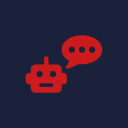 ChatGPT can explain and illustrate concepts such as Theory of Mind. However, this does not mean that it truly understands human psychology. Indeed, it cannot use this “knowledge” to solve real-life problems in novel contexts. But it is possible to teach it how to do so - with prompt engineering.
0 Comments
 Research makes it clear that frequent, high-quality feedback is essential to professional growth. However, school leaders rarely have the bandwidth to get back to teachers timely and meaningfully after class observations. Here is how AI can help. A great example of the next stage in AI integration: workflow automation.  Teachers love creating custom chatbots for their own purposes. However, effective, specific ones still require complex prompts on POE, and GPTs have limited accessibility. Child and data safety, as well as academic integrity, also remain problematic. This is where Mizou, SchoolAI, and Sherpa come in. All 3 are probably in my Top 10 favorite EduAI tools at the moment. Really worth a try.  The growing powers and pervasiveness of AI technologies will either help students develop fundamental skills, or prevent them from doing so. Or rather, unless we guide and scaffold their use, the risk is high that they will worsen, rather than enhance, their thinking, information literacy, and other critical competencies. This gallery based on the International Baccalaureate "ATL Skills" framework includes examples of tools and prompts that can help students make the best of the opportunities provided by AI to superpower their learning.  The “AI Assessment Scale” is a five-point scale created by Leon Furze to help educators clarify the appropriate level of generative AI (GenAI) use in their assessments. Its author breaks it down as follows: No AI - Brainstorming and Ideas - Outlining and Notes - Feedback and Editing - Full AI While it has many benefits and was an important contribution to our collective reflection on the most effective ways to help teachers and students integrate GenAI effectively and appropriately in an educational context, it also has limitations that ultimately call for a new Revised AI Assessment Scale. Here, I propose two: an “Intensity” scale and a “Competency scale”.  By definition, artificial intelligence is the automation of tasks that previously required human intelligence. While the list of such tasks is already impressive, and constantly growing, AI skeptics often qualify the wonders of artificial intelligence by pointing to specific human skills that are supposedly impossible for machines to replicate. In reality, this categorization is often incorrect, as AI technologies can already perform the tasks these critics present as uniquely human. They can, actually, often complete them not only faster, but better than us — and will only become more competent over time.  Public Service Announcement: OpenAI does let you keep your conversations to yourself and opt out of the use of your data to further train ChatGPT. But how to do so is not obvious. It is even possible to add this layer of protection and still save your chats history. But this incognito mode is even more hidden. Here is a step-by-step guide to help you protect your privacy on ChatGPT. |
|
Proudly powered by Weebly



